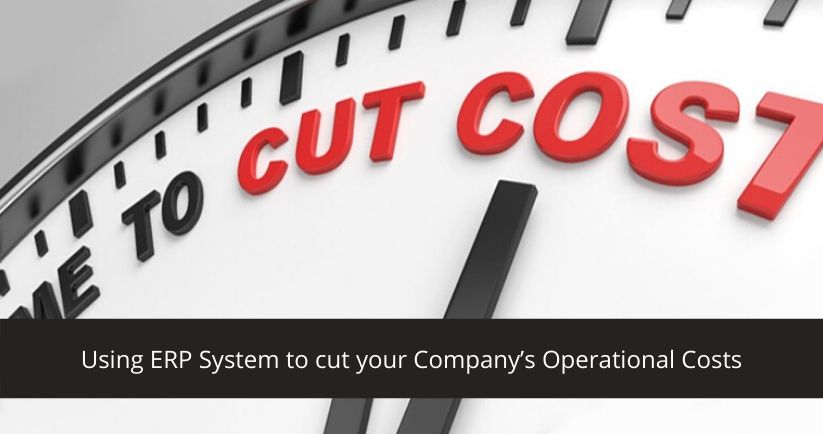ERP system, in today’s competitive world, reducing operating costs has become a need of the hour to run a lean and efficient organization. In addition, reducing and controlling operational costs has become a necessity in today’s volatile and financially challenging business environment. Sol in order to sustain in the growing market, the businesses need to be armed with the right tools to tackle the growing challenges and competition.
The most efficient way to sustain in a troubled market is by reducing costs without affecting the product quality or services. When an entrepreneur considers efficiency within an organization, enterprise resource planning comes into picture. Here are some prominent reasons an ERP software can help a business reduce its operational costs and improve productivity.
- ERP automates and standardizes operational processes: ERP software curbs the risk of manual errors. Since it automates key business processes, it enables a company to become agile and efficient.
- Optimizes Stocks in Inventory: ERP system’s functionalities allow you to reduce expenses, automate a majority tracking processes, maintain as well as determine inventory levels whilst ensuring accuracy and appropriate tracking of stocks, as well as expense and profit management.
- Improve analysis and reporting operations: ERP software helps in getting all financial and operational data from various departments and helps in generating critical reports such as balance sheets, general ledger, trial balance as well as quarterly financial statements. It provides unified reporting system for every business process. Implementing an ERP system helps in overall analysis of the data from different departments thus, assisting in better decision making.
- Improves the Sales Process: ERP helps in the various sales process. Its key functions include order placement, order scheduling, shipping and invoicing. This is helpful, as revenue from sales is the lifeline of any organization. Further, it helps in proper delivery of products on time.
- Manages Inventory Warehouse effectively: ERP for inventory management facilitates the process of maintaining appropriate levels of stock in the warehouse by setting targets, identifying inventory supplies, monitoring item usage, reconciling inventory balances and reporting inventory status.
- Standardized business process: The process consistency offered by ERP solution gives a consolidated view of the business across the distributed enterprises enabling continuous improvements, as it streamlines operations between departments and functions. It also brings in transparency and reduces human errors.
- Improved visibility: ERP allows quick access to every important process, since it makes available data from each department accessible to everyone. Access to all the critical information in a centralized location paves way for increased collaboration and streamlined tasks. ERP allows inter-departmental processes to be easily tracked with maximum efficiency. Simply put, ERP system serves as a perfect document management system.
- Customer Satisfaction & Retention: As all your customer information is centralized with ERP solution, sales team will be able to focus on building and maintaining customer relationships. With quality services, customer satisfaction will go up helping to gain more customers thus, helping the company to grow.
Thus, implementing an ERP system not only helps in reducing the operation costs, but it also lowers inventory control cost whilst reducing production costs to a great extent. Providing your employees with proper training on the ERP system will seamless business operations.




